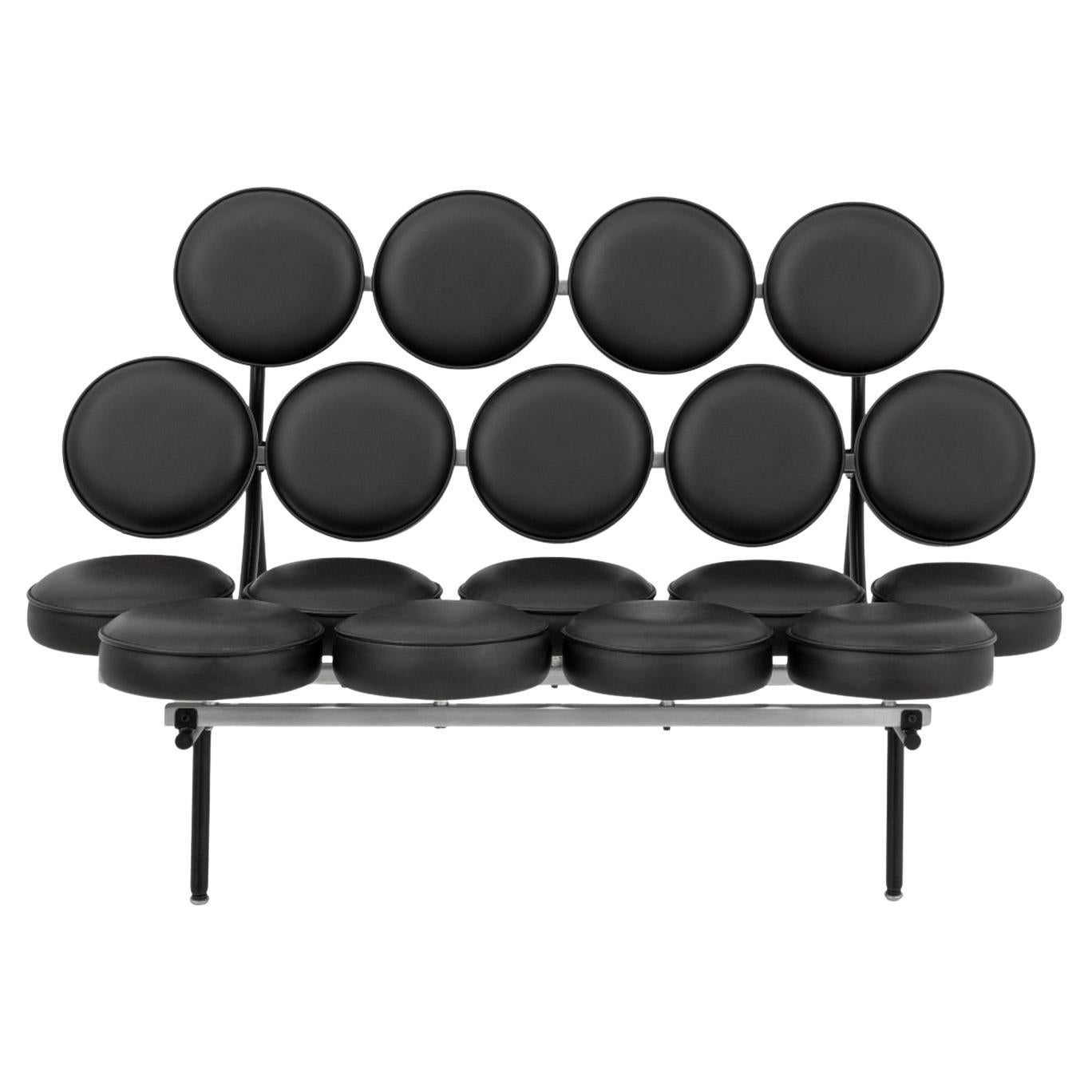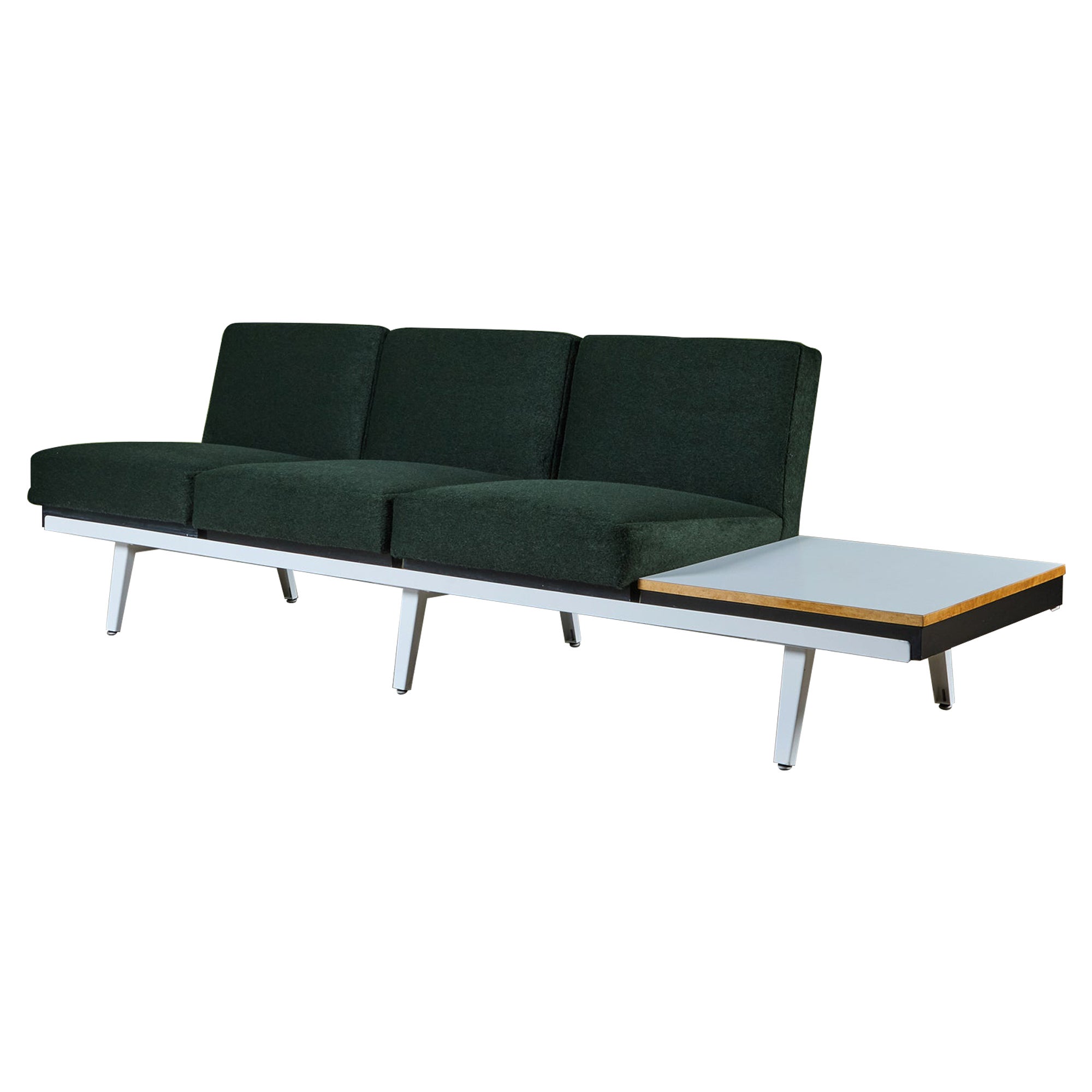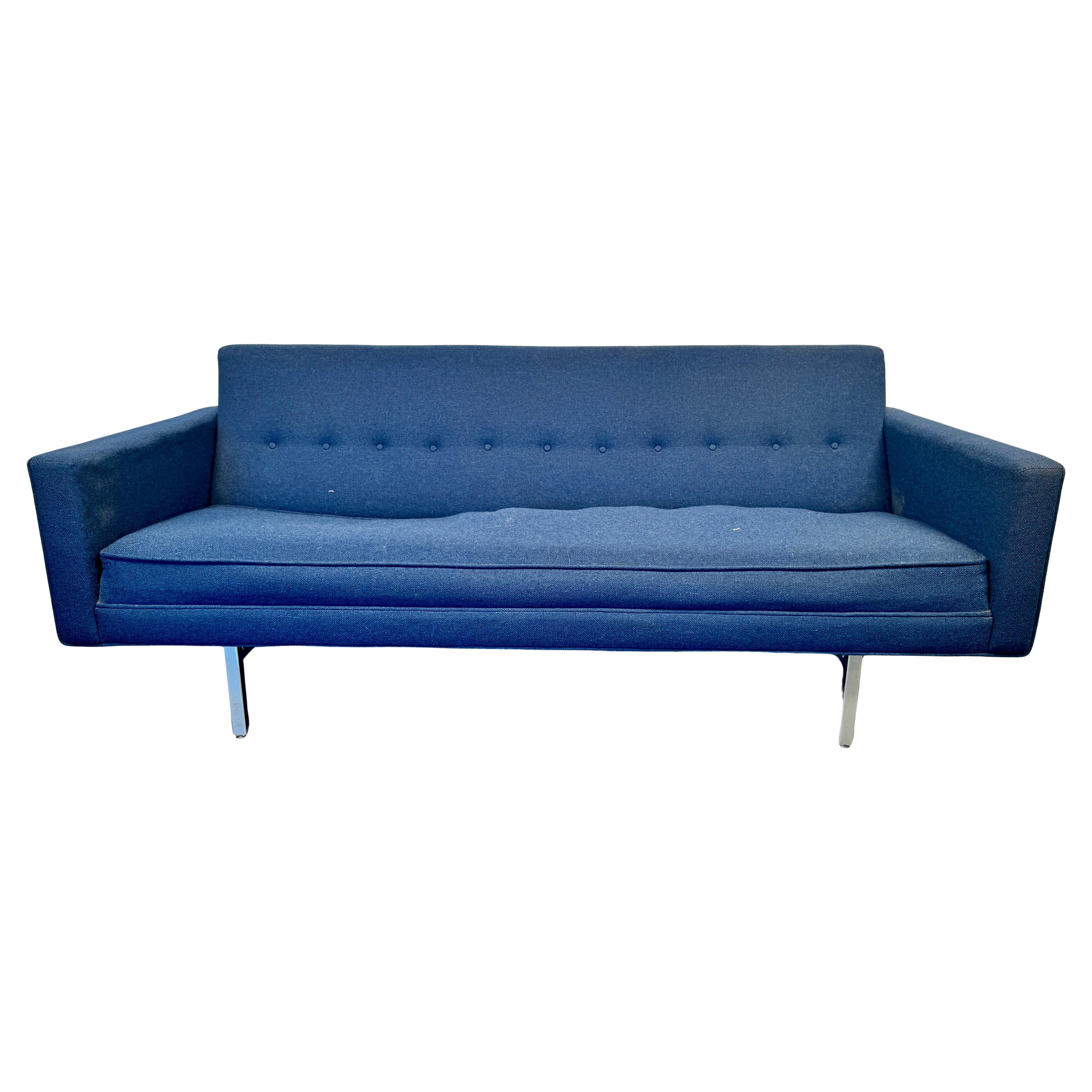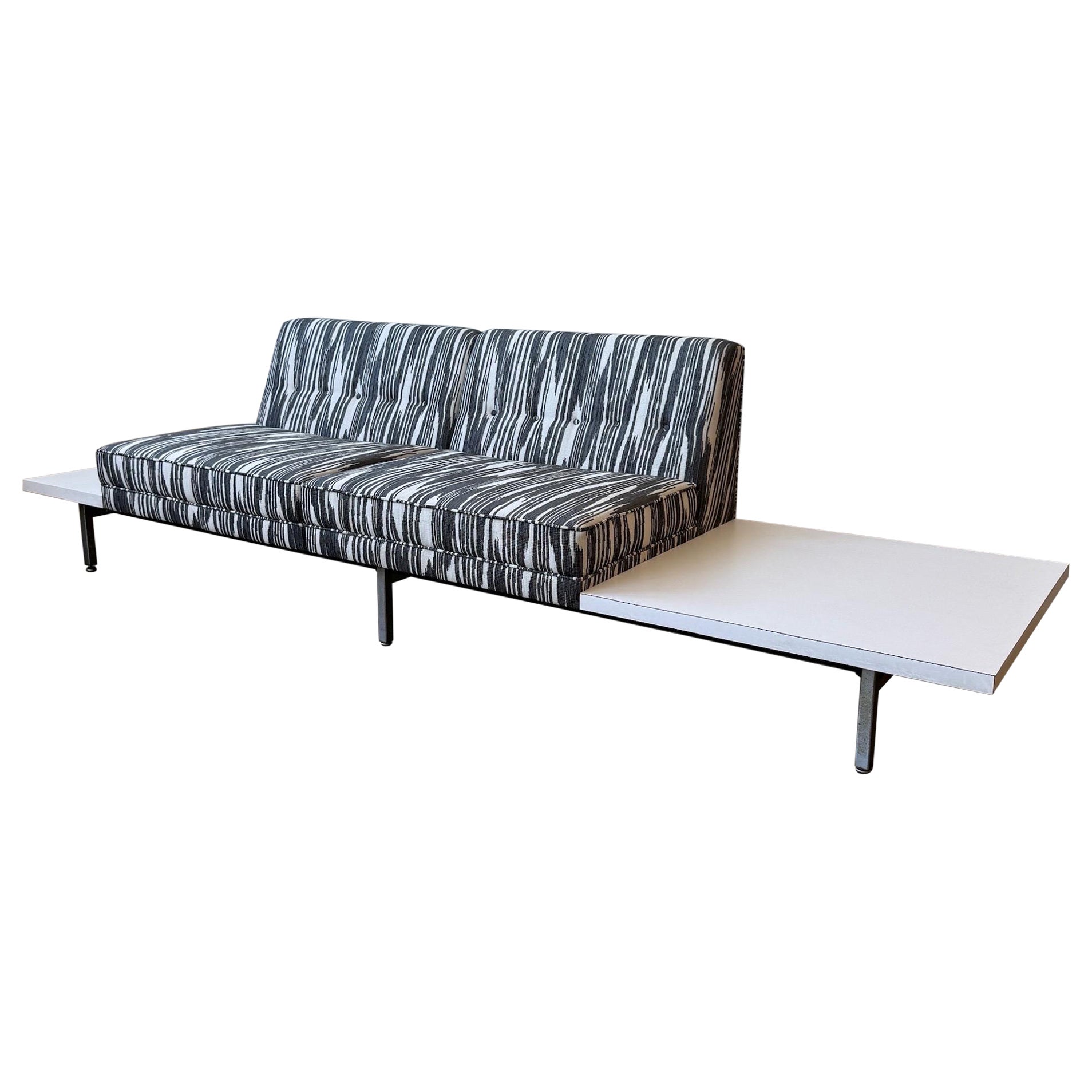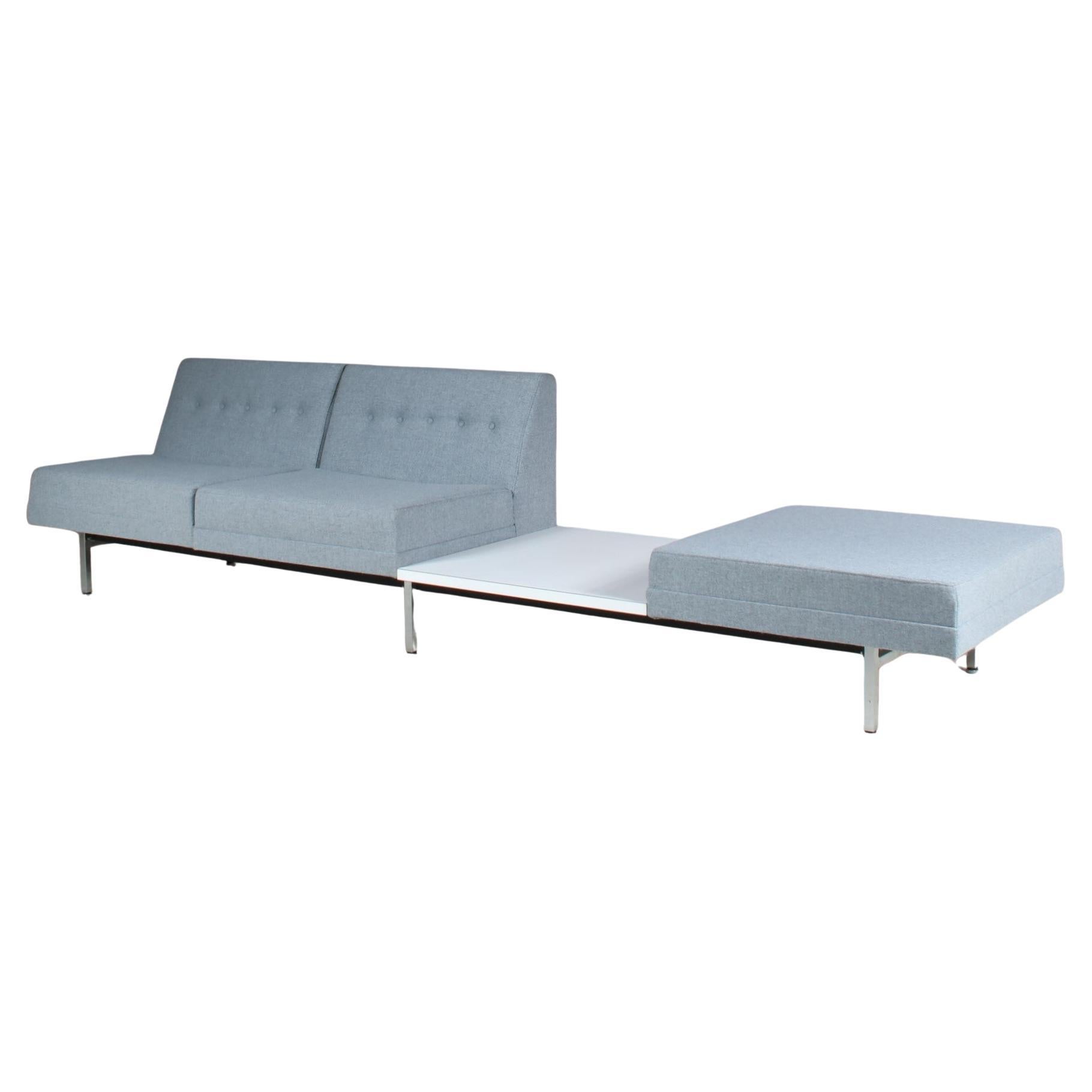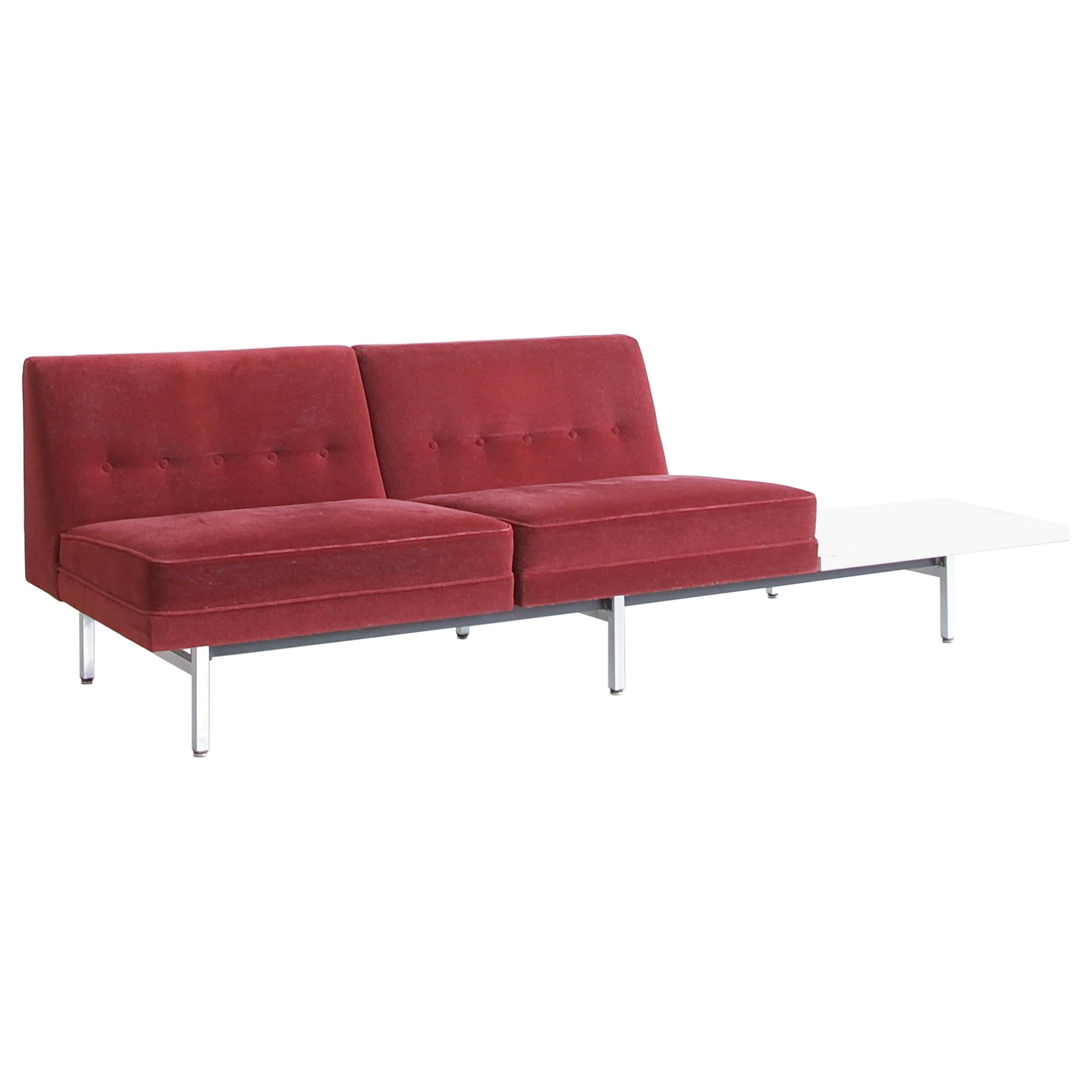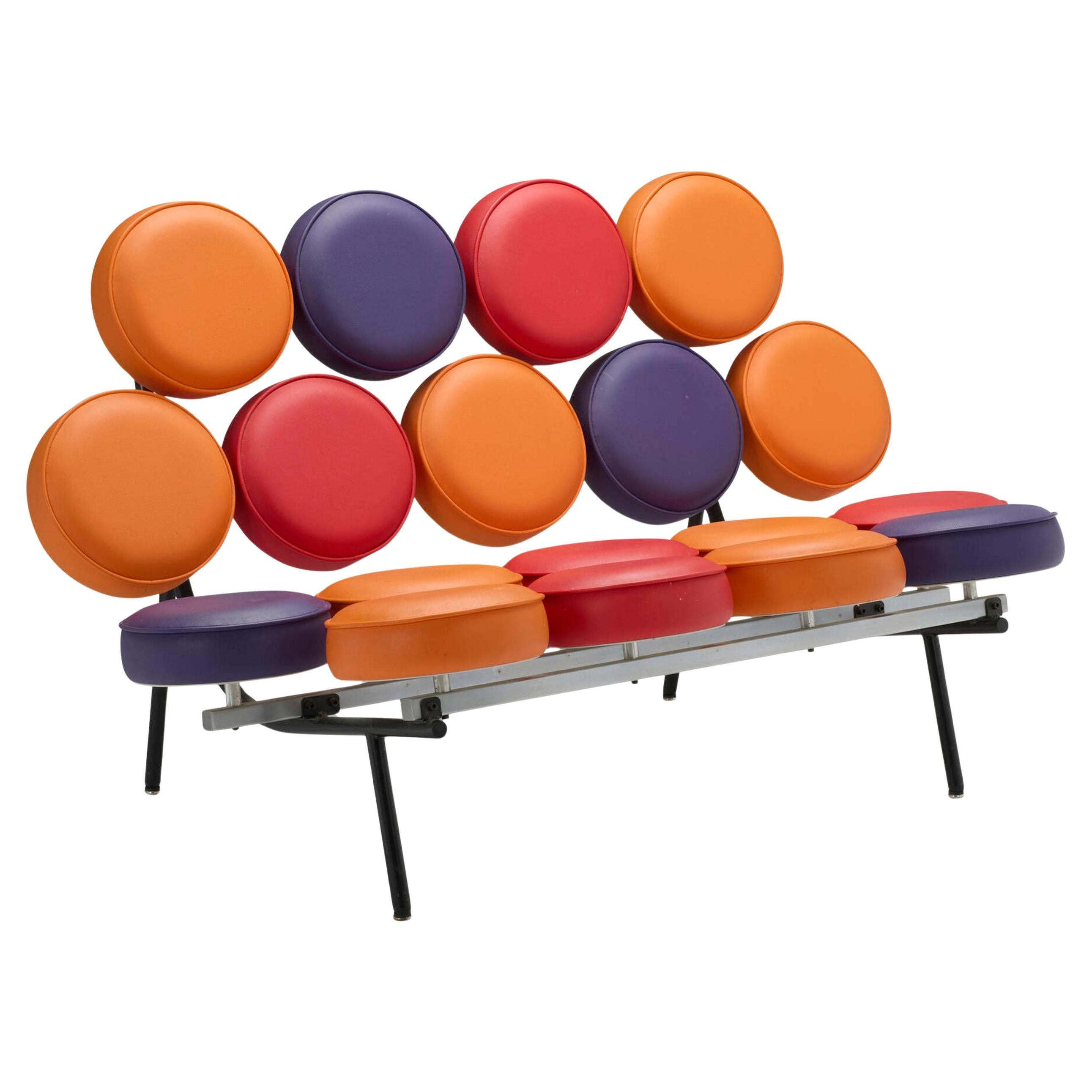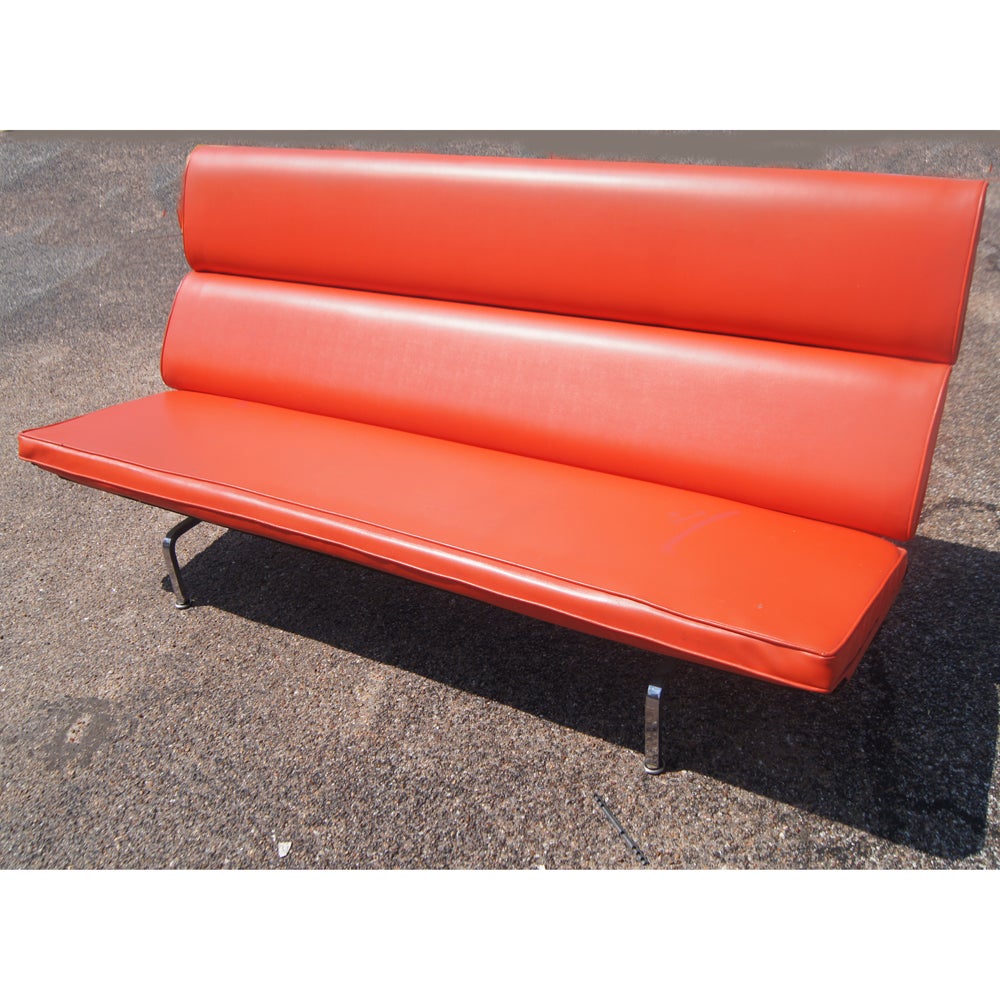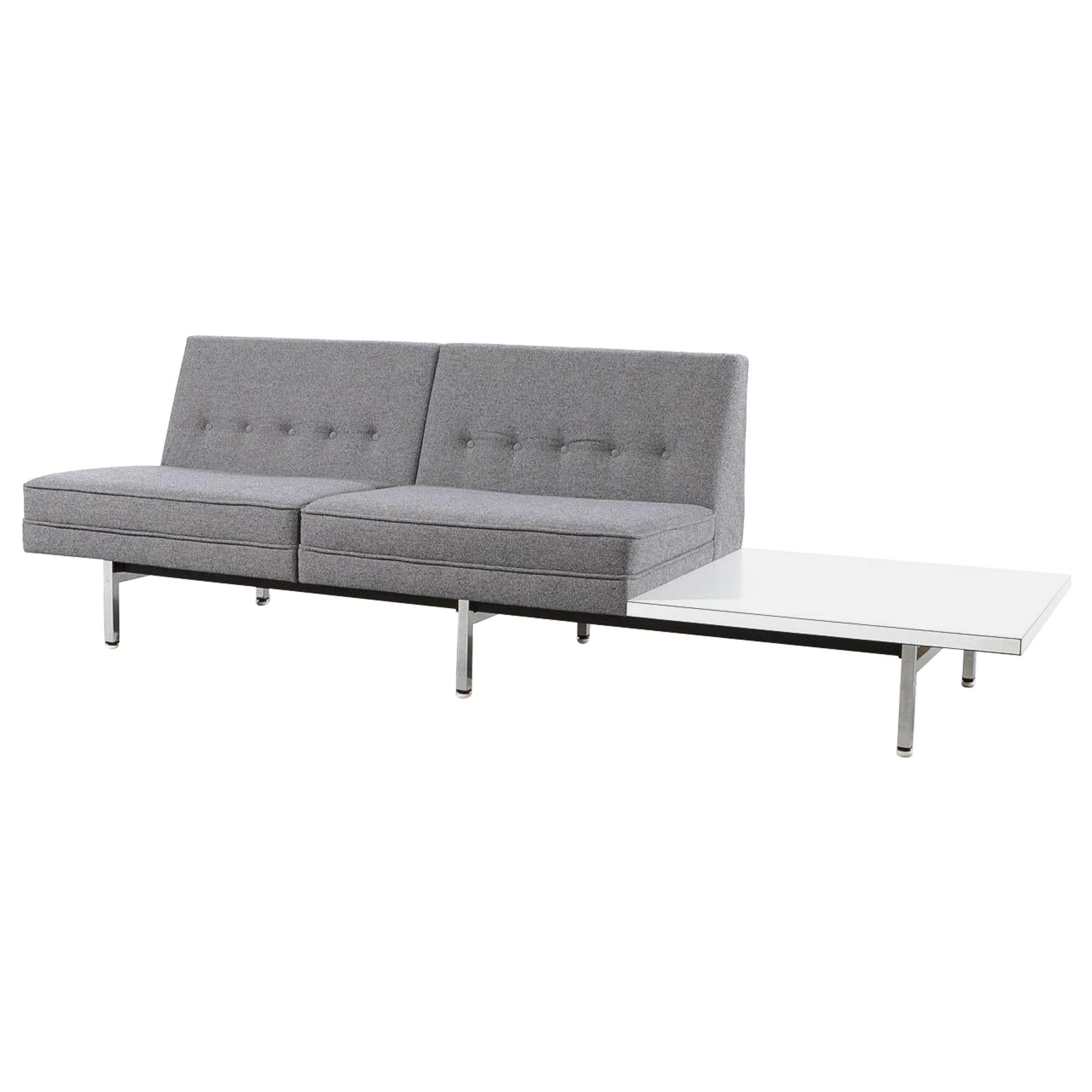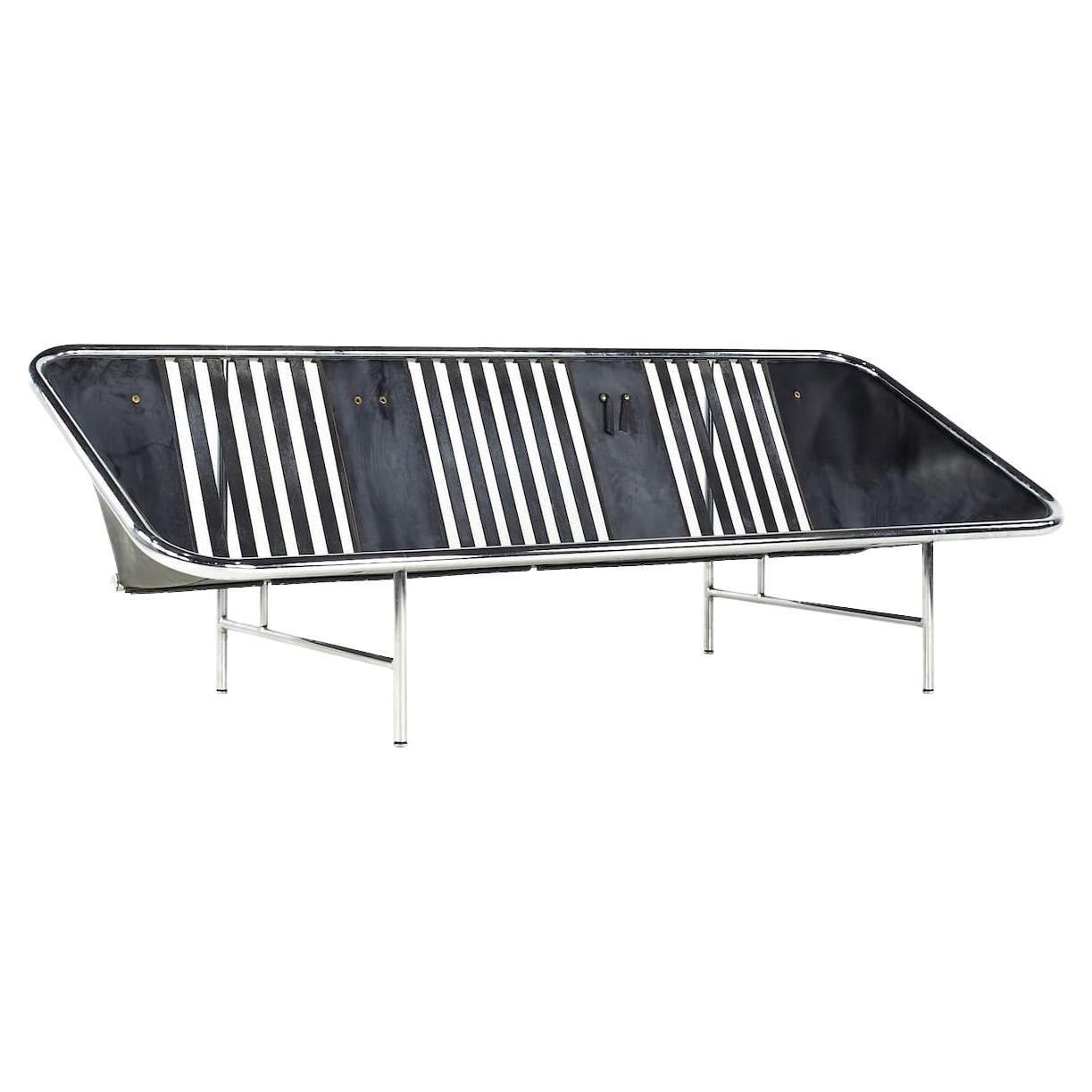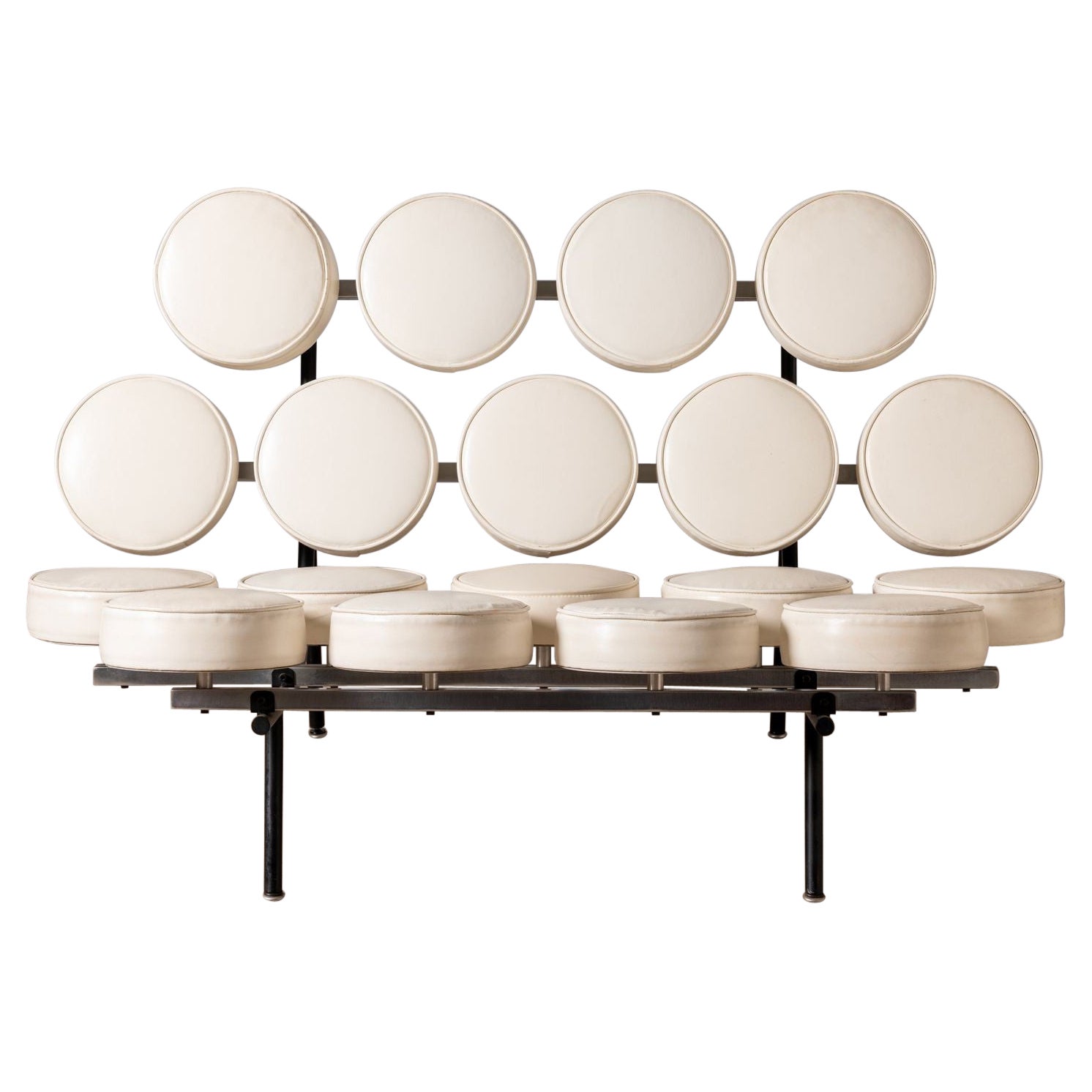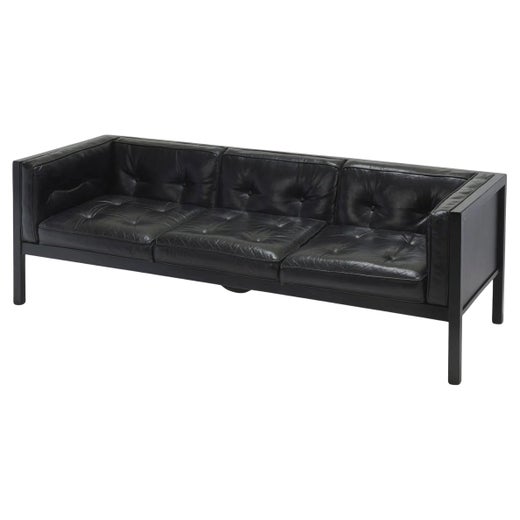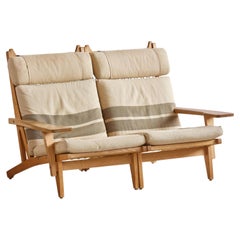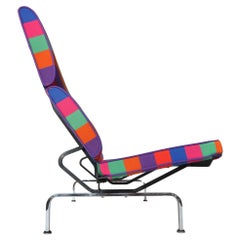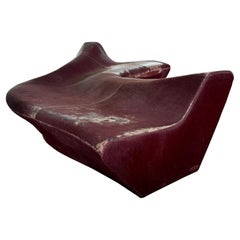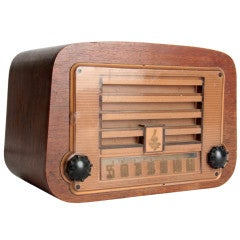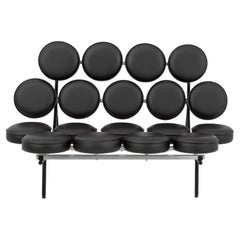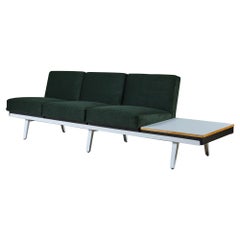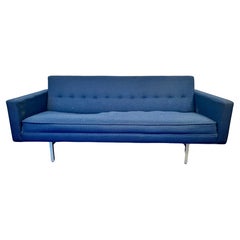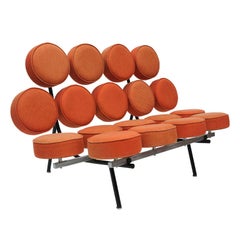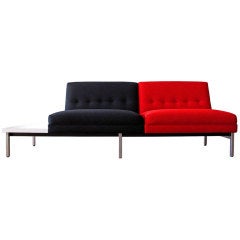
Unique George Nelson settee for Herman Miller
View Similar Items
Unique George Nelson settee for Herman Miller
About the Item
- Creator:George Nelson (Designer)
- Materials and Techniques:
- Place of Origin:
- Period:
- Date of Manufacture:1950's
- Condition:Very good. Could use a light cleaning.
- Seller Location:Toronto, CA
- Reference Number:1stDibs: U1209239347123
George Nelson
Architect, designer, and writer George Nelson was a central figure in the mid-century American modernist design movement; and his thoughts influenced not only the furniture we live with, but also how we live.
Nelson came to design via journalism and literature. Upon receiving his bachelor’s degree in architecture from Yale in 1931, he won the Prix de Rome fellowship, and spent his time in Europe writing magazine articles that helped bring stateside recognition to Ludwig Mies van der Rohe, Gio Ponti, Le Corbusier and other canonical modernist architects.
In the 1940s, Nelson wrote texts that suggested such now-commonplace ideas as open-plan houses, storage walls and family rooms. D.J. De Pree, the owner of the furniture maker Herman Miller, was so impressed by Nelson that in 1944 — following the sudden death of Gilbert Rohde, who had introduced the firm to modern design in the 1930s — he invited Nelson to join the company as its design director. There Nelson’s curatorial design talents came to the fore.
To Herman Miller he brought such eminent creators as Charles and Ray Eames, Isamu Noguchi, and the textile and furniture designer Alexander Girard. Thanks to a clever contract, at the same time as he directed Herman Miller he formed a New York design company, George Nelson & Associates, that sold furniture designs to the Michigan firm. Nelson's studio also sold designs for clocks to the Howard Miller Clock Company, a manufacturer that was initially part of Herman Miller before it became an offshoot that was helmed by Howard Miller, D.J. De Pree's brother-in-law.
Nelson’s New York team of designers (who were rarely individually credited) would create such iconic pieces as the Marshmallow sofa, the Coconut chair, the Ball clock, the Bubble lamp series and the many cabinets and beds that comprise the sleek Thin-Edge line.
For dedicated collectors, as well as for interior designers who look beyond “the look,” there is a “cool factor” inherent to vintage pieces from George Nelson and others. Nelson was in on it from the start, and it’s valuable to have a piece that was there with him.
But still, as is evident from the offerings from dealers on 1stDibs, in any of the designs, in any iteration whose manufacture Nelson oversaw and encouraged, there are shining elements of lightness, elegance, sophistication — and a little bit of swagger. George Nelson felt confident in his ideas about design and didn’t mind letting the world know.
More From This Seller
View AllVintage 1960s Danish Mid-Century Modern Settees
Wool, Oak
Vintage 1950s American Mid-Century Modern Sofas
Metal
Early 2000s Italian Modern Sofas
Hide
Vintage 1940s American Scientific Instruments
Metal
Vintage 1950s Finnish Scandinavian Modern Table Lamps
Brass
Vintage 1970s Finnish Chandeliers and Pendants
Copper, Metal
You May Also Like
2010s American Mid-Century Modern Sofas
Enamel, Steel
Vintage 1950s American Mid-Century Modern Sofas
Steel
Mid-20th Century Mid-Century Modern Sofas
Metal
Vintage 1950s American Sofas
Chrome, Stainless Steel, Steel
Vintage 1950s American Mid-Century Modern Sofas
Metal
Vintage 1960s American Mid-Century Modern Sofas
Metal
Recently Viewed
View AllRead More
A Guide to Herman Miller’s Most Iconic Furniture
The prolific manufacturer has partnered with many of the world’s top designers since opening its doors in 1923. Here are some of the company’s greatest hits, which helped transform the American home and office.
Kule and Forsyth Give Iconic Furniture a Bold Makeover with Stripes
Maggie and Anne Genovese, of Forsyth, teamed up with fashion designer Nikki Kule to reimagine some classic pieces.
